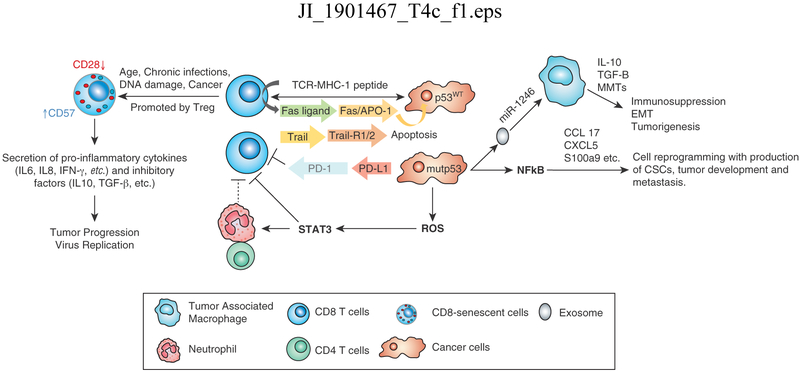Figure 2. Effects of wild type (wt) p53 and mutant (mut) p53 expressed in tumor cells on anti-tumor immune responses and inflammation.
Wt p53 upregulates MHC class I antigen presentation pathway and apoptosis receptors Fas/APO-1 and TRAILR1/2. In tumor cells lacking p53 or expressing p53mut, expression of MHC class I is low and PD-L1 high resulting in inhibition of the CTL upon binding to PD-1 receptor, whereas p53mut promotes upregulation of the NF-kB signaling, increased cytokine production and immune cell activation. In addition, activation of ROS induces the Jak-STAT signaling pathway, resulting in reduction of CD8+ T cells and increased immune cell frequencies. Furthermore, mut p53 cells shed miR-1246-enriched exosomes with a concomitant uptake by macrophages triggering immunosuppression. A variety of intracellular and extracellular signals induce senescent immune cells. CD8+CD28− T cells contribute to immune suppression and resistance to immunotherapy through several cytokines and changes in Δ133p53 and p53β expression.

